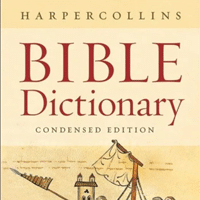One trained in the formal art of reading and writing, usually with competence in some area such as law, economics, or the like. In the ancient Near East the designation “scribe” covered a variety of offices, from the local copiers of documents and contracts for ordinary people to government officials invested with serious responsibilities. In the OT the scribe first appears as a muster officer (Judg 5:14) and later as a high cabinet officer concerned with finance, policy, and administration (2Kgs 22; Jer 36:10). Jeremiah’s associate, Baruch, who recorded his words, was also a scribe (Jer 36:32). In postexilic times (sixth century BCE) Ezra the scribe was sent by the Persian king to instruct and guide the inhabitants of Judea. In the NT “the scribes” occasionally appear alone, but are more often in company with other Jewish groups. In almost all cases they are opponents of Jesus (but see Mark 12:28-34). Similarly, in the early chapters of Acts the scribes and elders are opponents of Christianity (Acts 4:5; Acts 6:12).




